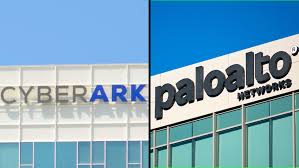As the anxiety brought on by U.S. tariffs has been overcome by a desire for expansion in corporate boardrooms and the influence of a boom in AI activity, global dealmaking has hit $2.6 trillion, the highest for the first seven months of the year since the peak of the pandemic in 2021.
According to Dealogic data, the number of transactions up to August 1 is 16% fewer than at the same time last year, but their value is 28% higher thanks to U.S. megadeals worth over $10 billion.
These include OpenAI’s $40 billion fundraising round, sponsored by Softbank Group, and Union Pacific Corp.’s proposed $85 billion takeover of minor rival Norfolk Southern.
Bankers who started the year anticipating a wave of consolidation under U.S. President Donald Trump will be relieved by the increase.
Instead, his trade tariffs and geopolitical unpredictability caused businesses to stop until the U.S. administration’s antitrust campaign and a revived sense of confidence in corporate boardrooms transformed the atmosphere.
Andre Veissid, Strategy and Transactions Leader at EY Global Financial Services, told reporters,
“What you’re seeing in terms of deal rationale for transactions right now is that it’s heavily growth-motivated, and it’s increasing.”
“Whether it’s artificial intelligence or the change in the regulatory environment, we see our clients not wanting to be left behind in that race, and that’s driving activity.”
This year’s total is about $1 trillion, or 27% less than in August 2021, when investors, recovering from pandemic lockdowns, lifted the value of trades to $3.57 trillion.
However, as CEOs adjust to volatility, dealmakers at JP Morgan Chase have stated that there is more to come, with businesses chasing larger mergers in the second half of the year.
Simon Nicholls, co-head of Slaughter and May’s Corporate and M&A group, stated,
“People have gotten used to the prevailing uncertainty, or maybe the unpredictability post-U.S. election is just more predictable now.”
The market was transcending tariffs, according to Clifford Chance Partner Nigel Wellings.
Boardrooms are seeing the M&A potential of a more stable economy and encouraging regulatory cues. It’s not a bubbly market, though.
FROM MEDICAL TO TECHNICAL
The computer and electronics sector has generated more takeover bids in the U.S. and the U.K. in the past two years, according to Dealogic, even though the healthcare sector led M&A in the years following the pandemic.
Dealmaking is predicted to increase as a result of artificial intelligence.
M&A activity has surged in data center usage.
For example, Samsung recently announced a $1.7 billion acquisition of FlaktGroup, a data center cooling specialist based in Germany.
As growing AI-driven threats force businesses to strengthen their defenses, Palo Alto Networks’ $25 billion acquisition of Israeli cybersecurity peer CyberArk was the biggest deal in Europe, the Middle East, and Africa this year.
With Sycamore Partners’ $10 billion deal to acquire the private Walgreens Boots Alliance and competing £4.8 billion offers from KKR and Advent for UK scientific instrument maker Spectris, private equity, which had been on the sidelines, has once again become active.
With over half of all M&A activity worldwide, the United States was the largest market.
Compared to the same period the previous year, Asia Pacific’s dealmaking surged, surpassing that of the EMEA area.

















